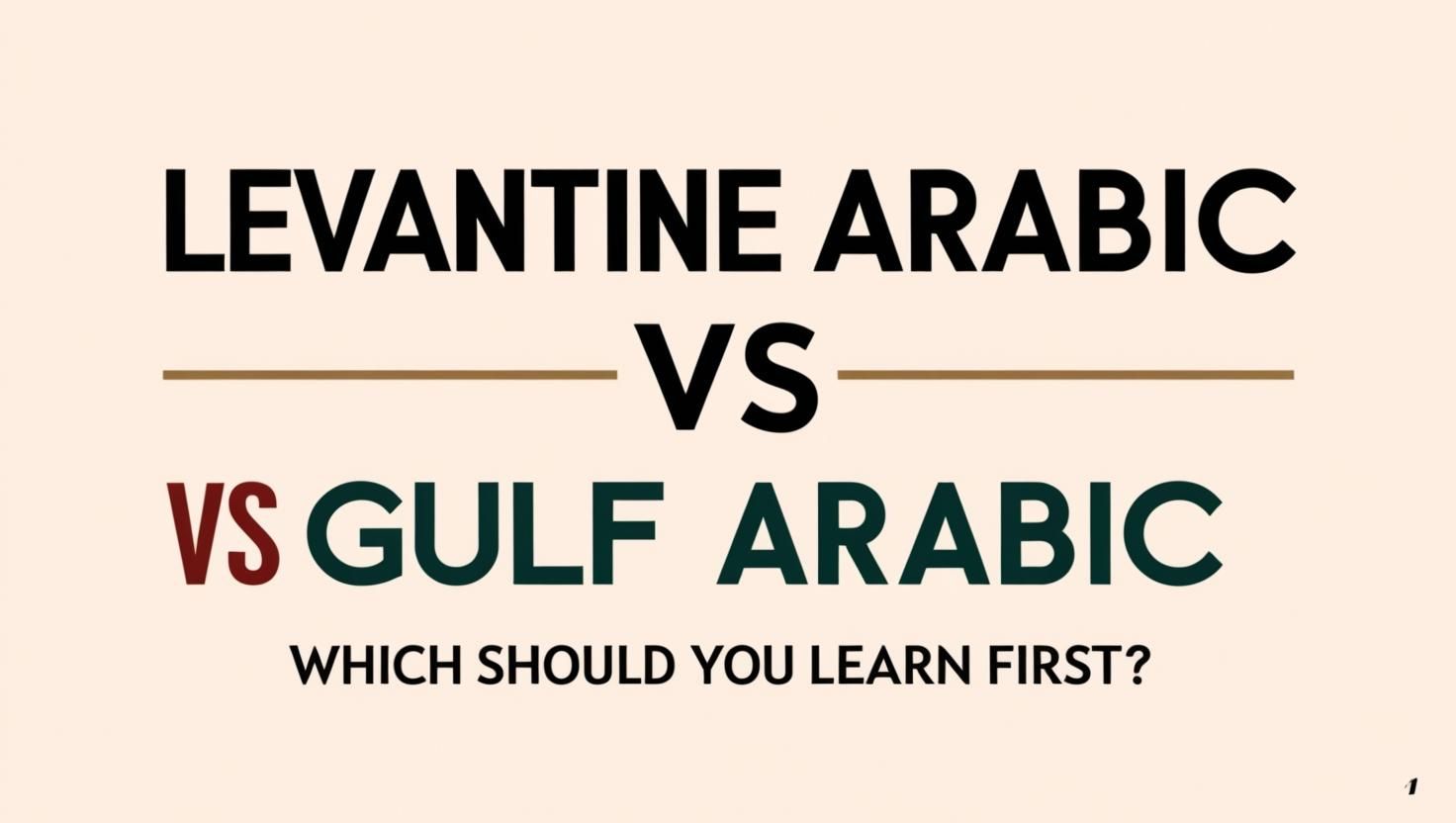Levantine Arabic vs Gulf Arabic: Which Should You Learn First?

Levantine Arabic: Quick Overview
Levantine Arabic is primarily spoken in Syria, Lebanon, Jordan, and Palestine. Levantine Arabic is often recommended as one of the easiest Arabic dialects for beginners due to its clear pronunciation, moderate speaking pace, and widespread media presence.
Key Features of Levantine Arabic:
- Vocabulary: Influenced by Turkish and French.
- “شُكراً” (shukran) – thank you
- “مرحبا” (marhaba) – hello
- “كيفك؟” (keefak/keefik?) – how are you?
- Grammar: Simple and conversational, typically avoiding complex verb forms found in Modern Standard Arabic.
- Pronunciation: Clear, beginner-friendly pronunciation.
- Usage Context: Perfect for casual conversations, entertainment, social interactions, and travel.
Gulf Arabic: Quick Overview
Gulf Arabic is mainly spoken in Saudi Arabia, Kuwait, Qatar, Bahrain, UAE, and Oman. Gulf Arabic is known for distinctive pronunciation, rich vocabulary, and cultural depth.
Key Features of Gulf Arabic:
- Vocabulary: Influenced significantly by Persian and Indian languages.
- “شلونك؟” (shlonak?) – how are you?
- “هلا” (hala) – hello
- “وايد” (wayed) – a lot
- Grammar: More formal with unique verb conjugations and specific regional expressions.
- Pronunciation: Noted for deeper, guttural sounds, notably pronouncing the letter “ق” as “g,” generally stronger than Levantine Arabic.
- Usage Context: Ideal for professional communication, business settings, and formal interactions within GCC countries.
Levantine Arabic vs Gulf Arabic: Detailed Comparison
Vocabulary
- Levantine Arabic: Turkish and French influences.
- Gulf Arabic: Persian and Indian influences.
Grammar
- Levantine Arabic: Simple, conversational, beginner-friendly.
- Gulf Arabic: More formal, structured, and nuanced in its conjugations.
Pronunciation
- Levantine Arabic: Clear, straightforward, suitable for beginners.
- Gulf Arabic: Stronger and more distinctive accent, requires greater adaptation.
Choosing the Right Dialect: Real-Life Scenarios
- Travelers & Tourists: Levantine Arabic is recommended for smooth travel and easier interactions.
- Business Professionals & Expats: Gulf Arabic is essential for professional success and integration within the Gulf region.
- Media Enthusiasts: Levantine Arabic is dominant in Arab TV shows, films, and music.
- Cultural Enthusiasts: Gulf Arabic allows deeper cultural immersion and a better understanding of traditions.
Final Recommendations
Your choice between Levantine Arabic and Gulf Arabic should reflect your personal objectives:
- Levantine Arabic is excellent for beginners, casual conversationalists, media enthusiasts, and general Middle Eastern interactions.
- Gulf Arabic is perfect for professionals or individuals planning to move to Gulf countries for career opportunities or cultural experiences.
Carefully evaluate your goals to select the Arabic dialect that best suits your language-learning journey.
Ready to Start Learning?
Check out more resources on our site:
